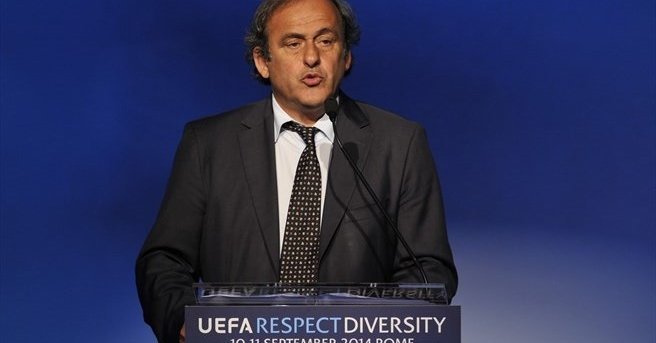A field of expression of deep-rooted social problems
“Sport plays an important role in the lives of many of us. For that role to be more effective and representative of all of us, its administration and governance need greater diversity and inclusion." (Morten Kjaerum in: Sport and Citizenship’s scientific journal n°11, “Sport and Discriminations in Europe”, p.11)
The building of Europe played a dominant role in the inclusion of all types of discrimination in public policies and in the public debate, following the Treaty of Amsterdam.
But when talking about football, there seems to have been some kind of “otherworldliness” (May 2013, Sport and Citizenship’s Conference on Football and Discrimination). This game has always played a role in the integration of immigrants and minorities, not by a conscious effort, but because it was the largest common denominator to a wide range of cultures and populations.
Unconsciously, football has been an extremely important vector for integration. With the development of the game in the 1980’s, and its increasing commercialisation, football has become highly mediatised. As a mirror of society, the consequence is that it reflects upsides as well as downsides. Some groups have chosen football to express hate and rejection feelings, while being aware that their message had an echo in a society for which integration was not working anymore.
The underlying question is simple: has football produced more exclusion than integration in the last years, especially when considering women and ethnic minorities?
Between integration and exclusion
To answer this question, it is worth having a look at the pyramidal structure of European football. At the top, national associations are responsible for the organisation, integrity and respect of the game, while professional clubs constitute the major visible player. On the pitch, it is not exaggerated to say that national teams and professional clubs send an artificial image of diversity, which does not translate off the pitch. Although UEFA’s efforts need be underlined, as of now, the governance of national teams and professional clubs do not constitute a model for diversity. UEFA President Michel Platini stressed during his opening speech that “every new push for improvement underlines the fact there is still much to do in terms of eradicating racism from the game” (Michel Platini)
It looks like the top of the football pyramid is not sending the best message and does not deliver the best template of governance and share of responsibilities to the amateur world. Embracing diversity in coaching, management and administration remains a hard objective to reach. It goes beyond the football pitch and the world of sport. It relates to the perceptions of those communities by the entire society. It also questions the way countries have addressed the more global question of integration vs. assimilation of those ethnic minorities.
Possible ways of improvement
The topic of the fight against discrimination in football and sport in general has long been on the agenda of European stakeholders, including Sport and Citizenship with the upcoming publication of a special scientific journal on “Sport and Diversity” in the beginning of 2015 .
Besides the “need for greater use of existing non-discrimination provisions in law” (Morten Kjaerum in: Sport and Citizenship’s scientific journal n°11, “Sport and Discriminations in Europe”, p.11), especially from a penal standpoint, incentives mechanism can be put in place.
When addressing the promotion of diversity and the fight against discrimination, the need for explanation and clear communication is paramount: reinforcing campaigns against racism, explaining the assets of diversity in football and in the world of sports in general.
One aspect of better communication could be to decentralise UEFA campaign at the grassroots level. The RESPECT campaign has long been initiated and brought to the Champion’s League picture. In order for local clubs and amateur players to capture the message, it needs to be appropriated by those actors who are the closest to the players. The campaign would then be passed on to the decentralised level, managed in the clubs, by the clubs. This could allow to disseminate in neighbourhoods, to build partnerships with local authorities, to open discussions with local civil society organisations and with schools.
Giving amateur football the means to organise themselves, prevent and fight against discrimination at grassroots level may be one of the solutions to explore for European decision-makers in the field of football.

Follow the comments: |
|
